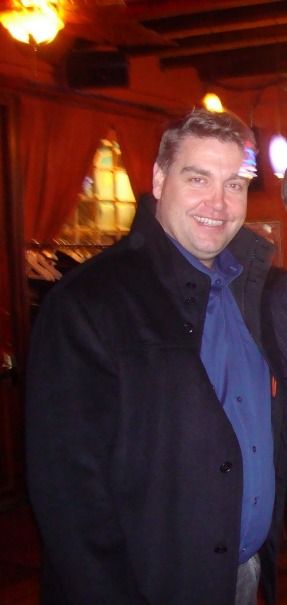


I finally saw the documentary Food, Inc.
Since the film was recommend to me by so many people I thought it was only fair to weigh in on it. Now, people come to this blog to read about my diet, my quest, and I was clear from the get-go that I am going vegan strictly for dietary reasons. Even though I don't want to wade too deeply into the ethical debate, I would like to comment on the film, and on the perceptions of veganism.
Food, Inc. is a polemic documentary. It was made to make a point, and that point was a searing indictment against the big food industrial complex. At times the film was an effective emotional plea, at times a terrifically interesting insight into where our food comes from, but also, at times, a one-sided argument against the industrialization of farms and of making a profit.
Make no mistake; farms, including the Joad family's, the ones that your Great Grandparents tended to in Germany, or Ireland, or Denmark, or China - and the picturesque farms (both real and imagined)that were part of our agrarian foundation of the United States were and are unpleasant endeavors. There is no pretty way to kill a chicken to feed your family, be it on the grounds of Thomas Jefferson's Monticello, or the darkened warehouses of Tyson Foods. I'll never forget my Great Grandmother telling the story about working in her immigrant parent's butcher shop in Astoria, Queens, NY at the turn of the 20th Century. She describe how they would lay wood planks down through the store and bring the horse out from that back yard for deliveries, and then she regaled us with how they would chop the heads off the chickens, and how the chickens would run around pell-mell for a few seconds - she laughed uproariously as she told this tale of her sweet and innocent childhood.
Many vegans find barbarism in the very act of killing animals for food, and I respect their opinion because it is unambiguous and absolute. What I found in Food, Inc. was a straddling of the lines between cruelty to animals, labor, and modern industrialization. They clearly fall on the side of favorability towards small organic farms, but the message is muddled - what do they loathe more? Is it the conditions these animals are forced to exist in, or the environmental impact, or the use of illegal aliens for labor, or is it an indictment against mass profit? All of which can be said, theoretically, are potential elements of an organic farm, too. Or, is their beef (embrace the pun) against the cleanliness of food processing? Since that was one of the more emotional elements of the film, they should have put it more in context - what percentage of people got sick because of unhealthy food processing in 2008 compared to 1958, or 1898? The fact that even one child should die from Ecoli is atrocious, but was it through gross negligence, or is it impossible to prevent not one person out of 300 Million in the U.S. from getting sick or dying from bacteria on farms? I'd like to think in this day and age we can prevent such a thing 100% of the time, but, if not, let's hear from scientists, not activists.
Although the documentary was eye-opening -- from the new manufactured reliance this country has on corn, to the new, chemically altered, processed nature of making our food, and the horrid conditions that animals exist in on this massive farms -- it was an incomplete story. I don't think that merely because the public relations officer from Dyson, or Tyson did not appear on camera means that they could not have given a more even-handed expose of this important topic.
Seeing cattle forced to stand in knee deep manure, and chicken's grown so large that they could not support their weight was appalling, but, then again, those chickens at my Great Grandmothers shop were not sitting in recliners with sunglasses smoking cigars and drinking martinis, either.
Another element was the awful breakouts of Ecoli, and hoof and mouth disease. But, is the food industry not better now at preventing disease in meat than it was when Upton Sinclair wrote The Jungle in 1906? It is worth exploring, and debating without side tracks into condemnations about capitalism. Again, vegans have a clear cut opinion on using animal products. And those, probably a majority of people, who choose not to concern themselves with such issues because we live in a land of plentiful, and inexpensive food are also quite clear in their opinion. I think the hand-wringers who fret over food conglomerations and applaud local farming, as propagated in Food Inc., have a harder time articulating a clear opinion.
It is not for me to say at what level the slaughter of animals are ethical versus unethical. I will say, however, that food grown, and yes, slaughtered, on small local farms taste better than the mass produced ones found in the supermarket.
I will also say, that I have lived for the past three months a happy and healthy life without any animal products. Even though I have said I plan to reintroduce meat and fish into my diet in moderation when I reach stated goal, I do want to emphasize that choosing veganism is not some martyr-like sacrifice, it is easier and tastier than you would ever imagine.
Finally, as I have alluded to in past posts, I think veganism needs a new PR campaign. Activists who paint farmers as evil doers do a great disservice to the positive nature of a plant-based way of living. Similarly, there are a slew of athletes and celebrities who are vegan and could be excellent spokesmen for the benefits of plant-based diets, but it is often the quirky celebrities, the few who are often arrested for their shenanigans, or imply those who eat meat are immoral, that get the most ink. Consequently, calling oneself a vegan, even in enlighten society, is met with confusion or even scorn.
I'll put my soap box away this evening, and look forward to writing about my day tomorrow in this ongoing, and happy vegan quest.




2 comments:
Hey - wandering through your post b/c of your interview on Disease Proof and saw this.
Suggest you read the book Food, Inc. - literally a "companion book" to go with the movie. The director talks about all the things he didn't want it to be/didn't expect it to be.
That part with Wal-Mart and the organic yogurt? He said that was a great example of the industry doing the right thing and that, on the outset, he expected he'd get similar scenes from Tyson, Perdue, etc, but he didn't b/c they won't talk. In the book it really sounds (and maybe you'd say I'm naive to believe) that he wanted to be more balanced, but the big company's just wouldn't let him be on their side.
Also - you say Grandma & Grandpa's chickens were sitting in recliners and drinking martinis... well... actually, the chickens of only a few decades ago had a much more humane life, in which they got to experience sunlight and walking around. And there are farms where chickens (and pigs, etc) still have that life (Farmer Reese in Kansas is worth nothing, as is Joel Salatin in Food, Inc., and Millsap Farms - which is the farm where I get my produce). It's actually safer and not that much more expensive for animals to have a life of decency. I'm not a vegan and disagree with say, PETA, on how animals should be treated, b/c I think they take it too far. But I think there is a moderate place where we can say, "As an American (and thus, among the wealthiest of people in the history of the world), the animals raised to provide my food can at least have a decent life - instead of a life in which they must experience pain and stress every single second, because it makes the chicken cost $1.79/pound instead of $7.99/pound. What's more, because of hormones and anti-biotics - those cheap chickens are toxic for you - part of the weight problem.
Anyway - way to go on the weight loss, keep it up. Hope my comments are taken just as a little healthy debate. I'm not trying to be super-critical or mean. Just a couple suggestions on more stuff to consider.
karajade:
Thanks so much for your passionate comments and insight. For me, personally, it is an evolving discussion, and I value learning more and more from readers like you. Thanks.
Post a Comment